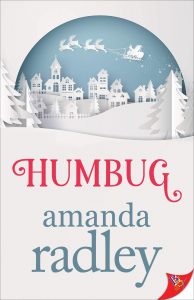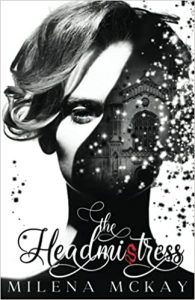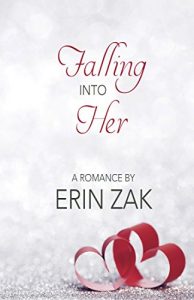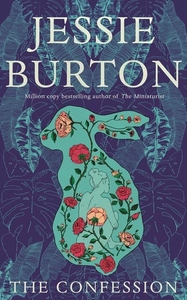Amazon Affiliate Link | Bookshop.org Affiliate Link
Humbug is a quiet Christmas novel with an age gap romance. I found it a relaxing and wholesome read, but it’s an unbalanced workplace romance. The book struggled to decide if it wanted to focus on the characters’ careers, or their love story.
Ellie is a brilliant statistician who is stuck in a dead end job at an HR recruitment firm. Everyone in her office knows that she loves Christmas because her desk looks like a Hallmark holiday movie year-round. So when her firm’s CEO, Rosalind, needs someone to organize an epic office Christmas party at the last minute, she taps Ellie to be her new executive assistant in a cushy penthouse office. There are just two problems. One, Ellie is terrified of heights and can barely stand to be in her new office without hyperventilating. Two, Rosalind hates Christmas, and her last assistant canceled all the party plans. As they work together, mutual crushes abound! But since neither can imagine the other wanting them, we get a slow sweet burn with plenty of personal growth along the way.
Rosalind is an intimidating, and exacting boss, and Ellie is initially a nervous wreck around her. But Rosalind is also a compassionate coworker, and a protective single mother, who appreciates Ellie’s talent. And Ellie is clearly talented. The woman engineers a winter wonderland from scratch, outside, during a London winter!
I loved watching Ellie rediscover her confidence through working with Rosalind. At the beginning of the book, Ellie has forgotten her worth and is grateful for any job after a period of unemployment. Slowly, Ellie learns that she’s been coasting along with an unfulfilling role, with roommates who take her for granted. I liked seeing Ellie find her happiness and I think this would be a great read for someone feeling stuck in their life or career. But I was left wishing that the end of the book had focused more on resolving Ellie’s career, and less on ramping on the romance. Still, if you love watching characters slowly figure out they like one another, and prefer your romances with no sex scenes, this may work for you.
I appreciated that Rosalind was portrayed as both a nurturing person who adores her articulate queer daughter, and as a shrewd businesswoman. She’s powerful and sexy, without feeling unattainable. I don’t usually like ice queen romances OR boss/employee romances, but I loved both of those tropes in Humbug. I thought the power dynamics were smoothly addressed. While there’s several work scenes where Rosalind enjoys flustering a blushing Ellie, Rosalind is too ethical to act on her growing attraction to Ellie. And though there is an age gap, and the two women are clearly at different points in their lives, they both clearly respected one another.
My favorite part of the story was Ellie’s unapologetic love of all things Christmas. It was intense, and adorable, and I loved that Ellie happily accepted other characters’ more muted—or hostile—feelings about the holiday. This is a classic Christmas rom-com, with holiday cheer and a predictable storyline. I would vote for Humbug as my favorite Christmas novel of 2021.











